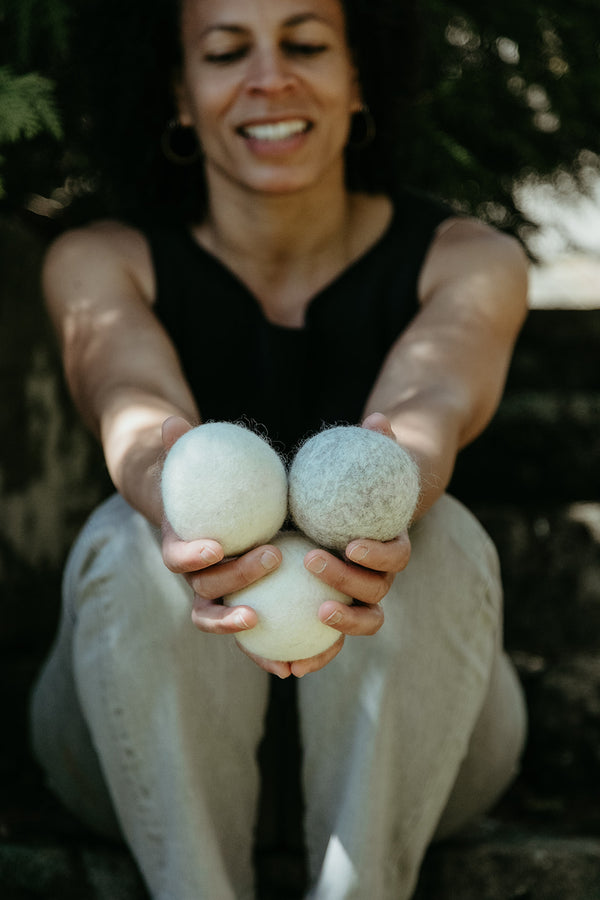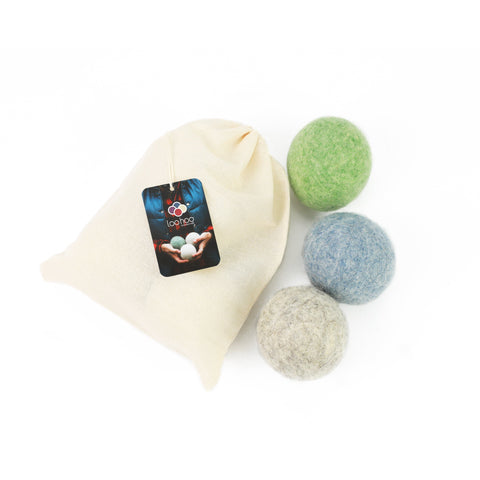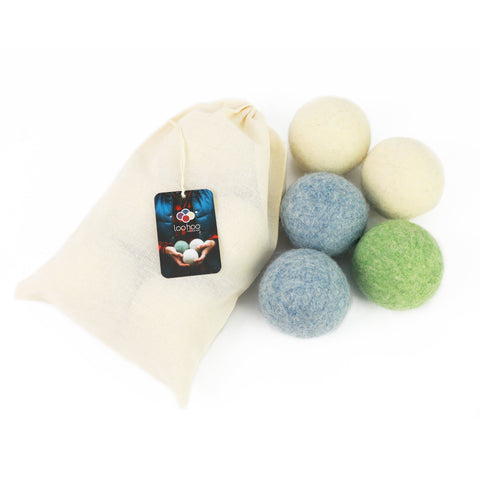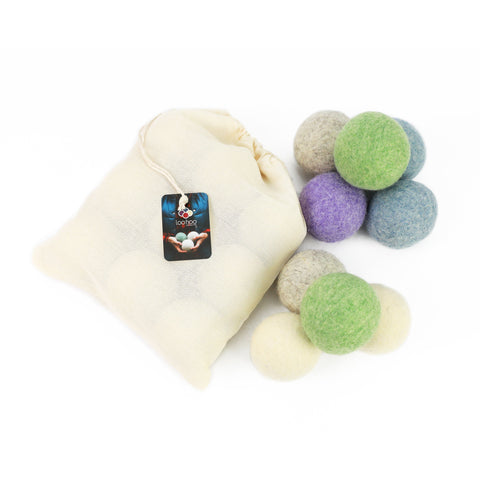Your Cart is Empty
Pick Your Perfect Pack
Pick Your Perfect Pack
Dryer Balls: How to choose the best brand?
March 13, 2023 3 min read

If you haven’t yet ditched traditional dryer sheets for dryer balls, consider the benefits: quicker dry time, energy saving, clothes softening and a healthier home thanks to the all-natural, biodegradable material used to make them.
All dryer balls get the job done, some more efficiently than others. Plastic dryer balls, when heated, emit the harmful chemicals they’re made of. They also have a tendency to crack and break over time. Though plastic may cost less and serve as the better option for anyone allergic to wool, wool dryer balls, hands down, are more durable, eco-friendly and quieter.
Luckily, when it comes to wool dryer balls, there’s no shortage on the market. Some are made with alpaca or sheep’s wool from Australia or New Zealand. Size and shape differ from brand to brand and most claim to last hundreds of loads.
The downside is that some dryer balls are not dense enough to be effective, may fall apart or start fraying too soon or come from companies more concerned about their bottom line than the sheep farms they source.
To help decipher what to look for in a wool dryer ball, consider the following:
Size
Dryer balls are meant to tumble and separate clothing, towels and whatever else you’re drying. A larger size ensures your laundry has a lot of surface to tumble against so clothes and linens soften more efficiently. Most dryer balls are 2” to 3” in diameter—about the size of a baseball—though some are slightly smaller. The bigger the ball, the better they work and the shorter the dry time.
Weight
Wool dryer balls need to be hefty in order to help circulate clothes. Generally speaking, smaller balls weigh less—another point for larger sizes. Balls are typically 1 to 2 ounces each and should be firm and smooth.
Type of Wool
While there are several types of wool, makers of most dryer balls have found that sheep’s wool is most durable for the workout dryer balls get. Just as varied are the faraway lands the wool comes from—Australia and New Zealand are well-known for their sheep and are responsible for almost 40 percent of the world’s fine-wool production. A close third in production is the United States with Texas ranking as the top producer. While you’ll find that the majority of wool dryer balls are made using New Zealand wool, few companies source wool from U.S. sheep farmers.
Manufacturing
Many brands look to the women of Nepal to craft their wool balls, leaving very few that are made in the USA. Buying local supports the economy, creates jobs and reduces our carbon footprint since the U.S. manufacturing processes are typically cleaner for the environment, according to Green Matters. A Consumer Reports survey reports that most Americans support local commerce, with eight out of 10 consumers preferring to buy products made in our country.
Company Values
Some argue against sheering sheep, claiming the process is harmful to the animals. However, the practice is actually beneficial and should be done at least once a year. According to an article published in the Guardian, unsheared sheep can overheat in summer, which can lead to death since domestic sheep do not shed their winter coats. But is it done humanely? The USDA, along with some wool mills, have created best management practices when it comes to sheep, serving as a reliable barometer for treatment of the animals. Also consider whether the manufacturer supports the local economy, gives back to their community or employs sustainable practices in the course of manufacturing their goods. Just as important as the product is the process established to create it—for the animals, our homes and the environment.
LooHoo Wool Dryer Balls: Breaking it Down
Size: 3.5” round
Weight:2 oz.
Longevity:1,000 dry cycles
Wool Source: U.S. Sheep Farmers
Manufacturing: Camden, Maine, USA
Company Values: LooHoo is committed to eliminating harmful chemicals in the home, one laundry room at a time, and supporting American Sheep Farms and the U.S. Farming Industry. Proprietress Cyndi Prince selects suppliers, manufacturers and partners that share her philosophy and is further committed to sustainable practices by using plastic-free, recycled packaging as much as possible.
Related Products
Subscribe
Sign up to get the latest on sales, new releases and more …

Join the LooHoo Community
Sign Up Now to be the first to learn about new products, sales and giveaways.




